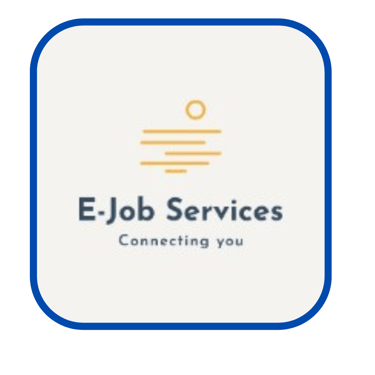The ROI of Recognition: Why ‘Thank You’ Still Works
Discover why a simple “thank you” could be the smartest leadership move you make this year. Explore the surprising return on appreciation and how meaningful recognition drives performance, loyalty, and culture.
NEXT LEVEL HR FOR EMPLOYERS
7/8/20252 min read


The ROI of Recognition: Why ‘Thank You’ Still Works
Published by E-Spire – Powered by E-Job Services
In an era driven by performance metrics, technology, and constant change, one workplace truth remains timeless: people want to feel seen, valued, and appreciated. Recognition is as simple as saying "thank you", remains one of the most powerful tools an organization can use to build loyalty, boost performance, and retain talent.
Why Recognition Still Matters
According to a 2023 report by Gallup, employees who receive regular recognition are 4 times more likely to be engaged, and companies with high engagement levels are 21% more profitable on average. Yet, despite this, many organizations still underestimate the power of consistent, meaningful appreciation.
Recognition taps into the core of human psychology: the need for affirmation. In the workplace, it reinforces behavior, enhances morale, and drives discretionary effort. When done right, it builds a culture where employees are not just doing their jobs, they’re invested in them.
Recognition vs. Rewards
It's important to differentiate between recognition and rewards:
Recognition is often intangible, public praise, a note of appreciation, a spontaneous shout-out in a team meeting.
Rewards are typically tangible, bonuses, gifts, promotions.
While rewards have their place, studies show that frequent and sincere recognition has a longer-lasting effect on motivation and retention.
The Business Case for Saying “Thank You”
Let’s break down the tangible return on investment (ROI) of recognition:
Reduced Turnover: A study by OC Tanner found that 63% of employees who feel recognized are unlikely to look for a new job.
Increased Productivity: Employees who feel appreciated perform 20% better, according to the Society for Human Resource Management (SHRM).
Better Culture: Recognition fosters trust, collaboration, and a sense of belonging, factors that are increasingly critical in hybrid and remote work environments.
Improved Manager-Employee Relationships: Consistent appreciation helps close communication gaps and builds rapport, especially between leaders and their teams.
Making Recognition Meaningful
To make appreciation impactful, it must be:
Timely: Don’t wait for the annual review. Immediate recognition reinforces behavior more effectively.
Specific: Vague compliments are less effective than targeted praise. Instead of “Great job,” say, “Your report was insightful and helped us close the client deal.”
Personalized: Understand how each employee best receives recognition, some value public praise, others prefer private acknowledgment.
Start Small. Start Now.
You don’t need a massive HR programme to build a culture of appreciation. Sometimes, a genuine “thank you,” handwritten note, or 60-second moment of praise in a team meeting can yield returns far beyond expectation.
In a world of performance pressure, a few words of recognition might just be the competitive edge your workplace needs.
--------------------------------------------------------------------------------------------------------------
About E-Spire and E-Job Services
E-Spire is the insights and thought leadership arm of E-Job Services, dedicated to empowering organizations and individuals with practical strategies for growth, leadership, and workplace transformation.
Need help designing recognition strategies that work?
Contact our HR & People Development Specialists at:
📧 support@e-jobservices.online | ejobteamservices122@gmail.com
🌐 Visit us at www.e-jobservices.online
References:
Gallup (2023). State of the Global Workplace Report.
https://www.gallup.com/workplaceOC Tanner (2023). Global Culture Report.
https://www.octanner.comSociety for Human Resource Management (SHRM). The Value of Employee Recognition.
https://www.shrm.orgHarvard Business Review. Why Employees Need Both Recognition and Appreciation.
https://hbr.orgLinkedIn Learning (2023). Workplace Learning Report.
https://learning.linkedin.com
